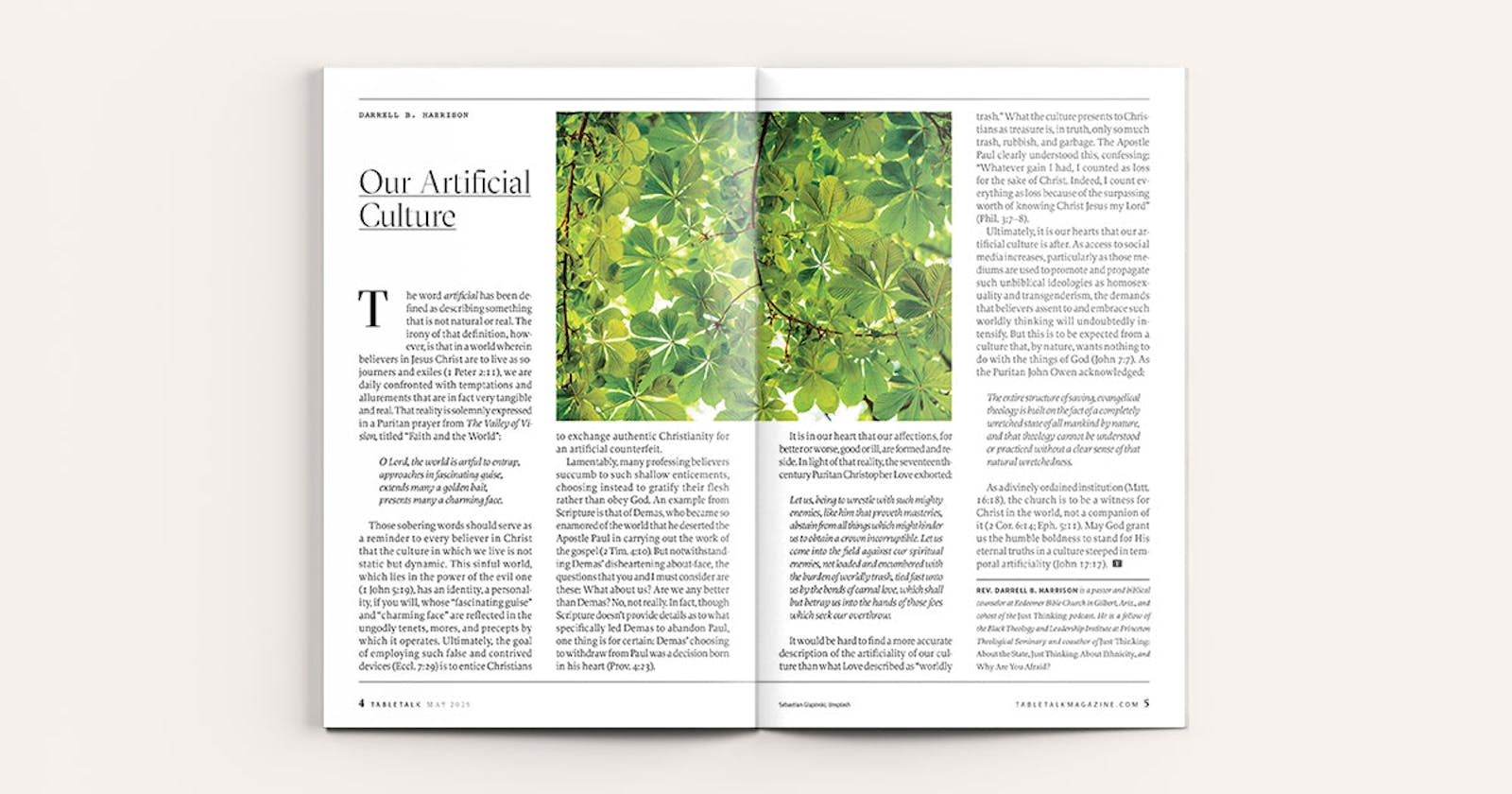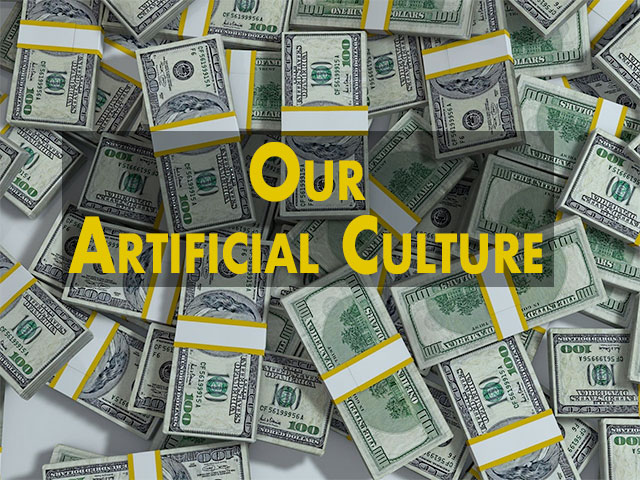Our Artificial Culture
The word artificial has been defined as describing something that is not natural or real. The irony of that definition, however, is that in a world wherein believers in Jesus Christ are to live as sojourners and exiles (1 Peter 2:11), we are daily confronted with temptations and allurements that are in fact very tangible and real. That reality is solemnly expressed in a Puritan prayer from The Valley of Vision, titled “Faith and the World”:
O Lord, the world is artful to entrap,
approaches in fascinating guise,
extends many a golden bait,
presents many a charming face.
Those sobering words should serve as a reminder to every believer in Christ that the culture in which we live is not static but dynamic. This sinful world, which lies in the power of the evil one (1 John 5:19), has an identity, a personality, if you will, whose “fascinating guise” and “charming face” are reflected in the ungodly tenets, mores, and precepts by which it operates. Ultimately, the goal of employing such false and contrived devices (Eccl. 7:29) is to entice Christians to exchange authentic Christianity for an artificial counterfeit.
The church is to be a witness for Christ in the world, not a companion of it.
Lamentably, many professing believers succumb to such shallow enticements, choosing instead to gratify their flesh rather than obey God. An example from Scripture is that of Demas, who became so enamored of the world that he deserted the Apostle Paul in carrying out the work of the gospel (2 Tim. 4:10). But notwithstanding Demas’ disheartening about-face, the questions that you and I must consider are these: What about us? Are we any better than Demas? No, not really. In fact, though Scripture doesn’t provide details as to what specifically led Demas to abandon Paul, one thing is for certain: Demas’ choosing to withdraw from Paul was a decision born in his heart (Prov. 4:23).
It is in our heart that our affections, for better or worse, good or ill, are formed and reside. In light of that reality, the seventeenth-century Puritan Christopher Love exhorted:
Let us, being to wrestle with such mighty enemies, like him that proveth masteries, abstain from all things which might hinder us to obtain a crown incorruptible. Let us come into the field against our spiritual enemies, not loaded and encumbered with the burden of worldly trash, tied fast unto us by the bonds of carnal love, which shall but betray us into the hands of those foes which seek our overthrow.
It would be hard to find a more accurate description of the artificiality of our culture than what Love described as “worldly trash.” What the culture presents to Christians as treasure is, in truth, only so much trash, rubbish, and garbage. The Apostle Paul clearly understood this, confessing: “Whatever gain I had, I counted as loss for the sake of Christ. Indeed, I count everything as loss because of the surpassing worth of knowing Christ Jesus my Lord” (Phil. 3:7–8).

Ultimately, it is our hearts that our artificial culture is after. As access to social media increases, particularly as those mediums are used to promote and propagate such unbiblical ideologies as homosexuality and transgenderism, the demands that believers assent to and embrace such worldly thinking will undoubtedly intensify. But this is to be expected from a culture that, by nature, wants nothing to do with the things of God (John 7:7). As the Puritan John Owen acknowledged:
The entire structure of saving, evangelical theology is built on the fact of a completely wretched state of all mankind by nature, and that theology cannot be understood or practiced without a clear sense of that natural wretchedness.
As a divinely ordained institution (Matt. 16:18), the church is to be a witness for Christ in the world, not a companion of it (2 Cor. 6:14; Eph. 5:11). May God grant us the humble boldness to stand for His eternal truths in a culture steeped in temporal artificiality (John 17:17).
Darrell B. Harrison is a pastor and biblical counselor at Redeemer Bible Church in Gilbert, Ariz., and cohost of the Just Thinking podcast. He is a fellow of the Black Theology and Leadership Institute at Princeton Theological Seminary and coauthor of Just Thinking: About the State and Why Are You Afraid?


Recent Comments